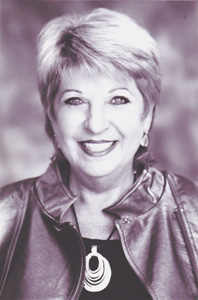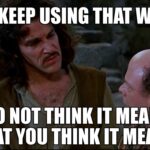 How To Present Yourself
How To Present Yourself
by Michele Wallerstein
Certainly we all think that this is simple enough. We simply show up. Are there right and wrong ways to present yourself? You bet. But you think that you are cool, hip, with it. You think you dress just fine and in an acceptable manner, especially since this is show biz. You are a “creative type,” so most value systems don’t count for you. You are an artist and can do things your own way. NOT!
You may be a writer, but you are looking for a writing career. The career part is what you may be playing fast and loose with by way of your self presentation. Remember grammar school? Neatness still counts and so do a lot of other things that may have slipped your mind.
Here are ten dos and don’ts to you, from me, based on my years as a Literary Agent, Personal Manager, Screenplay and Novel Consultant and Guest Speaker.
1. DRESSING WELL: You have a meeting at a studio or production company, or you have signed up for a “pitch” session. You are going to hear a speaker at a writer’s seminar or to meet with a possible agent or manager. It’s jeans, right? OK, but what about the T-shirt? Wrong. What about shorts, baggy or otherwise? Wrong. What about high heels and a tiny, tiny skirt? Wrong. First of all everything needs to be clean. That includes your shoes, pants, tops, hair, skin and fingernails. The jeans are fine if worn with a sport shirt (preferably with long sleeves, rolled up) or a collared knit shirt. Women, the same thing vis a vis the jeans and a nice blouse or shirt. The people you are meeting will notice if you are a mess or unkempt. You want them to notice your work and ideas, not your dirty fingernails or great legs.
2. ARRIVALS: If you are on time, then, you are late. Get to your meeting place a little early. Remember you have to find a parking place, find the right office or building, get a table at the restaurant, and most importantly, you do not want to keep your meeting waiting. If you are ten minutes late they will hate you, if you are fifteen minutes late they will probably not see you.
3. DEPARTURES: This one is hard to quantify but I’ll try. Don’t overstay your welcome. Be sensitive to body language, roving eyes, clockchecking and taking calls. These are sure signs that the meeting is over. Once you’ve pitched your project or yourself and heard what the other guy has to say, the meeting is over. Most meetings don’t go over 30 to 45 minutes. These people are very, very busy.
4. TALKING: Not as easy as it seems. Aside from pitching your project, you must do some P.R. on yourself. That means sharing. Not a dirty word, guys. If you don’t talk a little about yourself, they will never remember you. Share a bit about your life. Try to get the person interested in you.
5. LISTENING: I’ve represented more than one compulsive talker in my life and they rarely got the job. If you talk too much, you’ll be out on your ass and never seen again. Listen to what is being said by others. Ask questions, show interest.
6. ENTHUSIASM: Above all, be enthusiastic. No drooping face, foot shuffling or moody attitudes. If you are terribly shy, get over it, you’re an adult, act like it. Firm handshake, eye-to-eye contact and a big smile are all required. Show that you’re happy to be there and they will react in kind.
7. HAVE THE GOODS: If you are pitching a project, you better have the finished script. It’s even better if you have one with you in your case. Don’t waste people’s time pitching an idea if you are a new writer and don’t have the pages to back it up. It’s OK for the pros, not for you.
8. THE WRITTEN WORD: Show the same respect for your written work that you show for your wardrobe. NO TYPOS. NO GRAMMATICAL ERRORS. Take the time and make the effort to see that your script is perfect. As a matter of fact this applies to all of your writing, even if it’s an email, letter, invitation, etc. Maybe you need to have it read by someone else, preferably someone very smart. Make sure your screenplay has a cover page with the script title, your name and your contact number and/or email. The pages must be numbered, and use the thick brads with washers.
9. FOLLOW UP: Send a thank you note or email. Don’t call unless that was agreed upon for a reason. Keep the note simple and direct.
10. RESPECT: Don’t take crap from anyone except the head of a major studio. If your meeting keeps you waiting for over 30 minutes, politely tell the assistant that you have another appointment and must leave. If they continue to take long phone calls during your meeting, stand up and say that this must not be a good time and that you will call for another appointment. Then leave. If you don’t show respect for yourself they won’t either. If you do show self-respect, they certainly will remember you.
Michele Wallerstein is a Screenplay & Novel & Career Consultant and author of “MIND YOUR BUSINESS: A Hollywood Literary Agent’s Guide To Your Writing Career“.
Email: novelconsult@yahoo.com
Web site: www.novelconsultant.com
Copyright 2009 Michele Wallerstein. Not be used without written permission from Author.





Okay, but why is the ball on one side. Sure the writer has to behave and act proper like you say.
But I don’t buy this 100%. I go eye for eye with producers and I’m a good screenwriter. I have tons of crediits (INDY) under my belt.
The day I respect a producer 100% is the day they serve ice tea in hell. Some producers (and they should) should learn how to fight, meaning, don’t expect the writer to bend over backwards and take it. That’s not the the way it works. Some of the best screenwriters are tought, relentless, and very sensitive and stubborn. That’s why they are up there with the eagles.
So producers: put on your boxing gloves and lets fight. I’m not affraid of you guys. You think you can change my script without my input, you got anothing coming.
I will never change.
Maybe if they are super nice and listen and make sure my vision comes first.
Andrew
Andrew, you made at least 5 mistakes in a short comment thread. Good luck in your writing career.
and act proper > properly
I have tons of crediits > credits
Some of the best screenwriters are tought > tough
I’m not affraid > afraid
you got anothing coming. > another thing